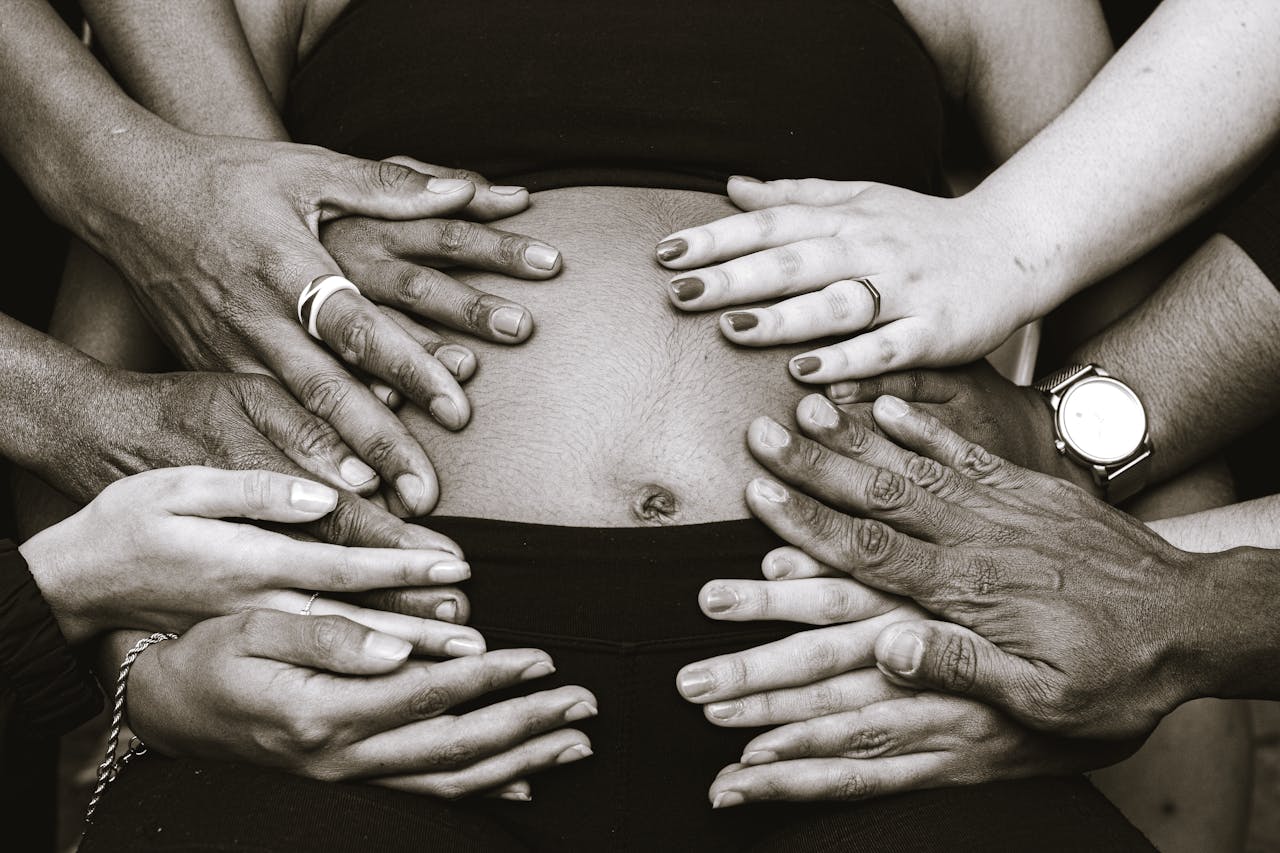Home
Pregnancy & Breastfeeding Tips for New Moms: Preconception, Pumping & Parenting Support
Second Trimester | Pregnancy Glow: Skincare Tips for Expecting Moms

Second Trimester | Pregnancy Glow: Skincare Tips for Expecting Moms
The second trimester of pregnancy is often the mom-to-be’s favorite. At this point, you’re likely past the nausea and morning sickness, and the baby isn’t so big that you’re getting uncomfortable. Indeed, many pregnant women love the second trimester because it tends to be the most comfortable one. For most women, this is also where the pregnancy “glow” starts to show, making top-notch pregnancy skincare even more important.
What Happens to the Skin in the Second Trimester?
In your second trimester, you may start to notice stretch marks on your belly due to the growing fetus. They may also appear on your breasts and may be red or dark purple in color. Not all pregnant women get stretch marks, but many of them do.
There are some OTC oils and lotions that claim to lessen or get rid of these marks, but no study has proven that they are effective. Nevertheless, making sure that your skin is moisturized frequently is very important and can keep away at least some stretch marks.
Some of the most common skin challenges in the second trimester include:
- Skin that is drier, especially on your belly
- Dark skin spots on the facial area (the “mask” of pregnancy)
- A dark line in the middle of your belly (linea nigra)
- Sensitivity to the sun
Skin dryness is very common during pregnancy, so now is not the time to forget your moisturizer, and even if you’re not experiencing sun sensitivity, don’t forget the sunscreen, either. Applying sunscreen with a high SPF number is important, and you should do this every day. While having glowing skin during pregnancy is normal and appreciated by most expectant moms, this doesn’t mean that you don’t have to take care of your skin.
Another problem that you might have with your skin while you’re pregnant is acne. Even if you haven’t had acne since you were a teenager, it can reappear while you’re pregnant. You might also experience other conditions that you’ve had in the past, including eczema, rosacea, and psoriasis, among other things. This is nothing to be alarmed about because it’s due to your changing hormones, which means that most of the conditions should disappear after you have your baby.
Will Skincare Products Harm the Baby?
Most skincare products on the market have been tested and are safe for pregnant women. Nevertheless, keep in mind that since the products go into your skin and your skin is considered an organ, it’s possible for lotions and other skincare products to get to the fetus.
When searching for safe beauty products for pregnancy, it’s best to avoid the following ingredients:
- Hydroquinone, which is a prescription product used to lighten the skin but which the skin absorbs quickly
- Formaldehyde, which can increase the risk of miscarriage; look on the label for names such as quaternium-15, bronopol, DMDM hydantoin, hydroxymethylglycinate, or diazolidinyl urea
- Phthalates, which are not included in many products today but can cause dysfunction in both reproduction and development of babies
- Salicylic acid in high doses, which include skin peels and certain oral medications
- Retinoids, which are commonly found in many anti-aging products and can cause congenital irregularities in unborn babies
- Chemical sunscreens, which can disrupt hormones; avoid products that contain octinoxate, oxybenzone, or octocrylene
In most cases, it’s relatively easy to determine which skincare products to use and which ones to avoid. A little research is all that it takes to find out the truth. Nevertheless, you can consult with your doctor if you’re unsure or you have additional questions. They always keep up with the latest studies on products that can affect a fetus and can help you decide what to use and what to avoid.
How to Take Care of Skin Challenges
In your second trimester, you may experience drier skin, which is uncomfortable, but this is a simple problem to solve. For one thing, keep yourself hydrated by drinking a minimum of eight glasses of water every day. Moisturizing products can also help, especially the ones that contain ingredients such as cocoa butter, hyaluronic acid (HA), and coconut oil. You simply don’t need chemical-filled skin products to help your skin look and feel better.
In addition to checking with your doctor or online, you can also go to the Environmental Working Group’s website for help. The EWG can tell you exactly what’s in your skincare products so you can stay away from the ones that are harmful. Considering that you have a developing fetus in your belly, you cannot be too careful when it comes to the products you use, especially skincare products.
Conclusion
Your skin will indeed glow in your second trimester, but you can also experience sensitivity to the sun and skin that is much drier than it was in the past. Fortunately, if you use a high-SPF sunscreen, moisturize your skin on a daily basis, and drink lots of water to stay hydrated, your skin will be much healthier in the end.
Share


